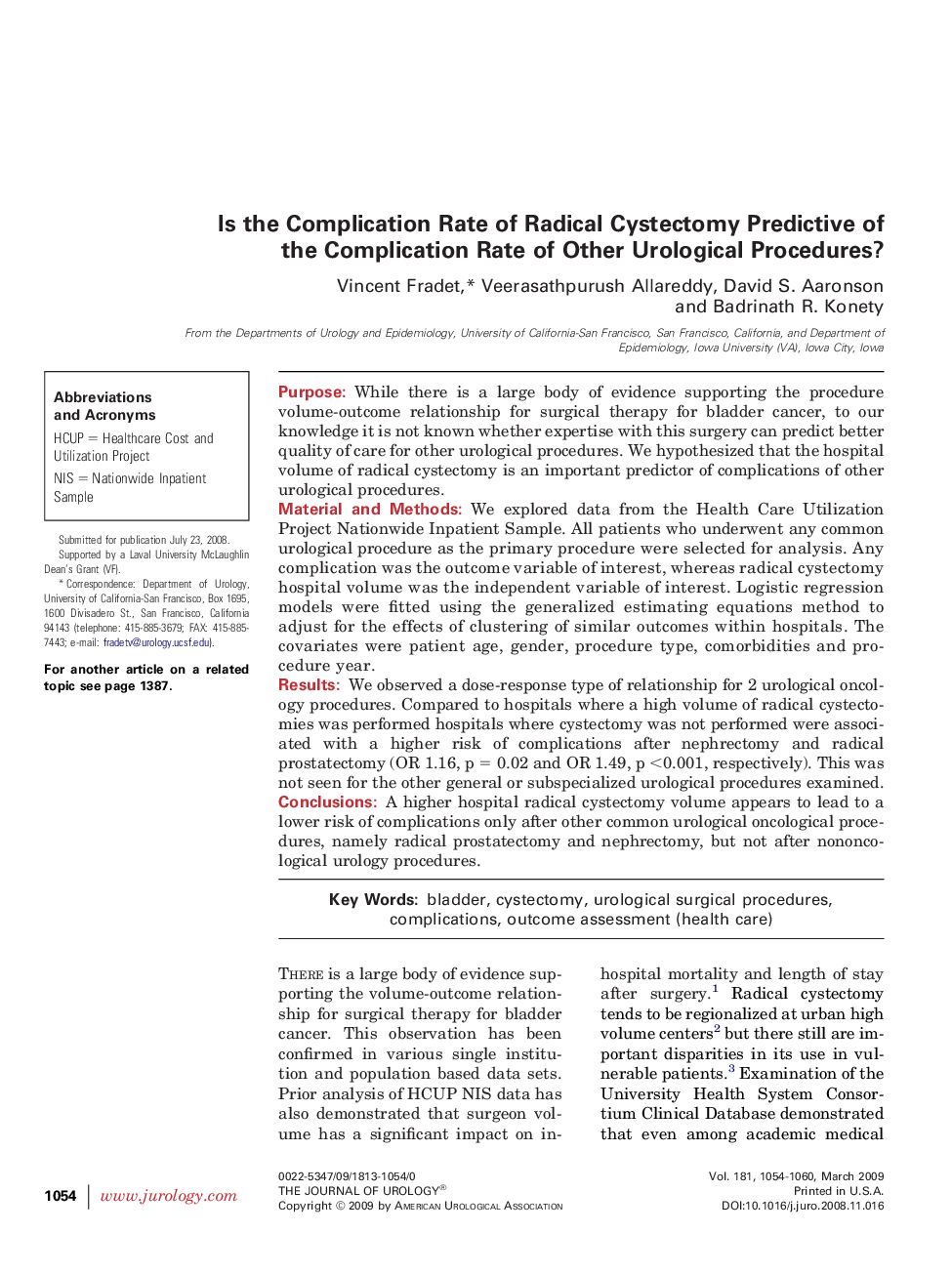| Article ID | Journal | Published Year | Pages | File Type |
|---|---|---|---|---|
| 3870530 | The Journal of Urology | 2009 | 7 Pages |
PurposeWhile there is a large body of evidence supporting the procedure volume-outcome relationship for surgical therapy for bladder cancer, to our knowledge it is not known whether expertise with this surgery can predict better quality of care for other urological procedures. We hypothesized that the hospital volume of radical cystectomy is an important predictor of complications of other urological procedures.Material and MethodsWe explored data from the Health Care Utilization Project Nationwide Inpatient Sample. All patients who underwent any common urological procedure as the primary procedure were selected for analysis. Any complication was the outcome variable of interest, whereas radical cystectomy hospital volume was the independent variable of interest. Logistic regression models were fitted using the generalized estimating equations method to adjust for the effects of clustering of similar outcomes within hospitals. The covariates were patient age, gender, procedure type, comorbidities and procedure year.ResultsWe observed a dose-response type of relationship for 2 urological oncology procedures. Compared to hospitals where a high volume of radical cystectomies was performed hospitals where cystectomy was not performed were associated with a higher risk of complications after nephrectomy and radical prostatectomy (OR 1.16, p = 0.02 and OR 1.49, p <0.001, respectively). This was not seen for the other general or subspecialized urological procedures examined.ConclusionsA higher hospital radical cystectomy volume appears to lead to a lower risk of complications only after other common urological oncological procedures, namely radical prostatectomy and nephrectomy, but not after nononcological urology procedures.
